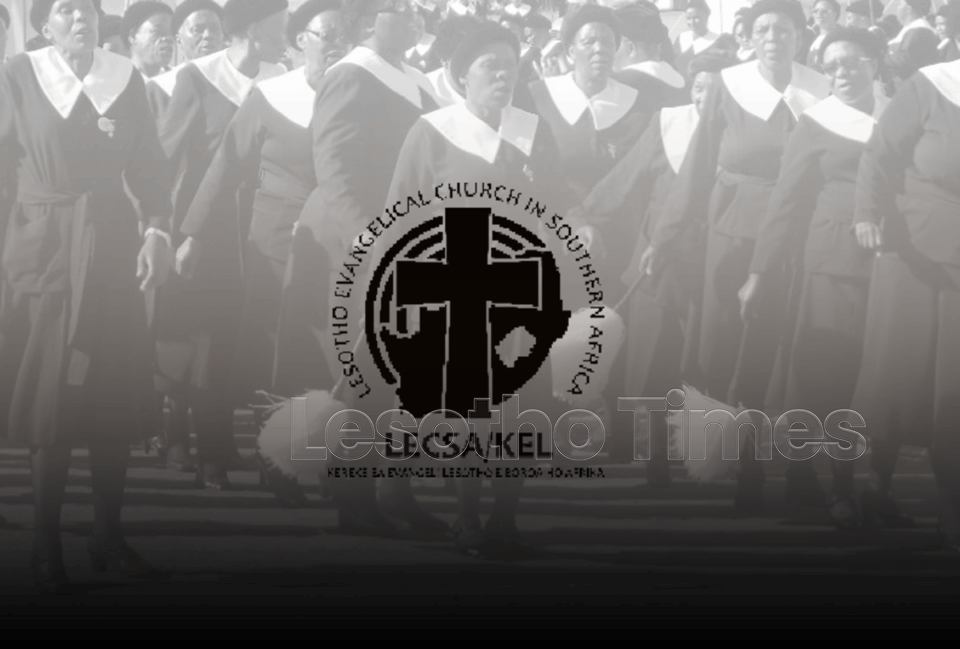Hopolang Mokhopi
THE Lesotho Evangelical Church in Southern Africa (LECSA) has lost its appeal in a long-running battle over a disputed field at Ha Nqabeni, Leribe, after the High Court dismissed its attempt to reclaim the land from the Gqoli family.
Justice Makampong Gugu Mokhoro, in the Northen Division of the High Court, upheld the Botha-Bothe Magistrate’s Court ruling which found that there was a “genuine dispute of fact” over who had been in undisturbed possession of the land.
Khwezi and Mawethi Gqoli, and village headman Mopeli Nqabeli were first to third respondents, respectively.
The Church’s argument
The church insisted it had peacefully occupied and cultivated the field for more than a century until November 2023, when members of the Gqoli family allegedly seized it.
In its court papers, the church argued that it had been occupying and using the field peacefully without any disturbance for over a century until 10 November 2023 when the Gqoli family “forcefully and unlawfully ploughed it”.
The church further argued that the family’s act amounted to unlawful self-help, depriving it of land it had long relied upon “to produce food for vulnerable people around the area and their school-(going) children”.
It asked the courts to order the family to return the field.
The Gqoli’s version
But the Gqoli family, supported by Chief Nqabeni, told a very different story.
Chief Nqabeni insisted the land had always belonged to the Gqolis.
He argued that as far as he knew, the church has never ploughed the filed other than when it resorted to self-help by ploughing the said field thereby overriding the family’s possession and usage of the said field.
He also argued that one Leornard Gqoli, the grandfather of the Khwezi and Mawethi, had used and ploughed the field since 1964 until 2005 when he disappeared, and that, thereafter, it was used by his daughters.
He buttressed his argument that besides being the headman, he grew up in the locality and had always known the field to belong to Learnard Gqoli. Chief Nqabeli said the grandchildren of the Gqoli family were in undisturbed possession of the field in question.
His testimony was backed by Leonard’s daughter, Malehlohonolo Leqheku, who filed a supporting affidavit.
She stated that the field belonged to her father from as far back as around the 1960s and that after his disappearance, it was used by her sisters-in-law, Makhwezi and Mafezile until it passed on to their sons, Khwezi and Mawethu.
Judge’s verdict
Justice Mokhoro ruled that the church had failed to counter these detailed claims convincingly. Instead, she described the church’s reliance on a single disputed line in the (Gqoli) family’s affidavit as misleading.
“Applicant has not substantially disputed the averments of the respondents and their supporting affidavits in its replying affidavit. This move has detrimentally sunk Applicant’s case. All the Appellant has done is to rely on an argument that “the family thereafter used it” to try and prove that the church was in an undisturbed possession of the field until the family ploughed it.
“I reject this argument as flawed because it deliberately ignores the entire context within which that averment was made by the third respondent. A single line cannot be used to dilute the contextual meaning of third respondent’s argument. The appellant deliberately misconstrues this context to give it a meaning, albeit without success, that fits its desired outcome.
“The third respondent has instead said that the family was still ploughing the field but only stopped when they were instructed by the Council, together with the Church, not to plough the field until a resolution was reached. It was when the Church ploughed it despite Council’s instruction that the Family resumed its possession of the field by ploughing it.
“The issue of possession and usage, which is central to this case, cannot easily be resolved on the papers filed with the court aquo, it is, therefore, my considered view that the respondent’s version should prevail because it has been substantiated.”
Justice Mokhoro therefore dismissed the LECSA case.
“This appeal was not opposed, hence costs will not follow the result. I accordingly make the following finding: The appeal is dismissed, no order as to costs.”

